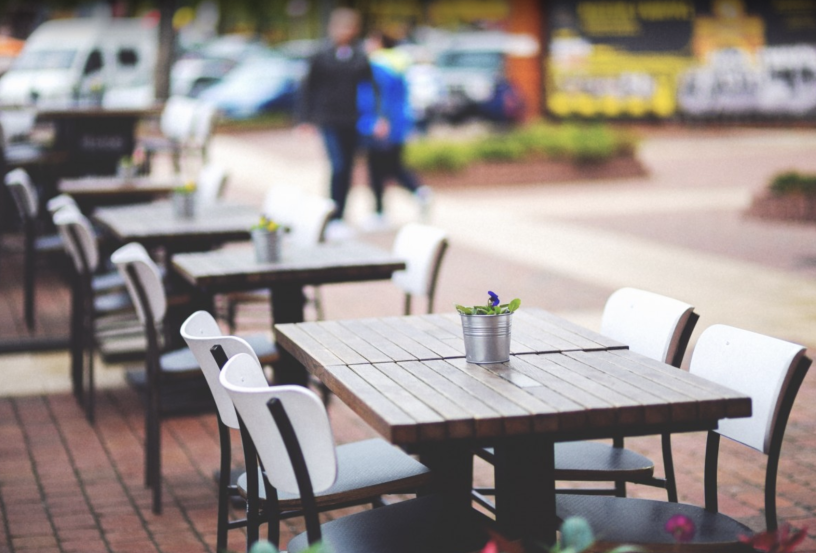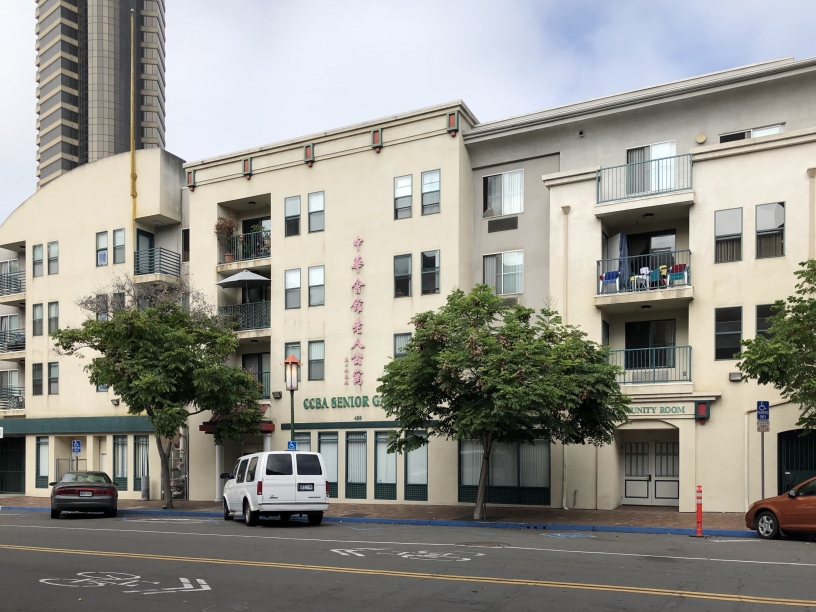The People's Business: July 13, 2020
OK, we're getting to the heavy load for the July City Council meetings. Four meetings to go before the August recess -- July 14, 21, and 28, and Aug. 4. Let's look at the July 14 docket.
Remember, if you'd like more detail on anything summarized here, click the agenda, then click on the item. Over on the right side of the page, you'll see links to a staff report and other pieces of supporting material.
City Council -- Tuesday, July 14
Tuesday's docket includes four consent items that are considered non-controversial and won't be discussed unless someone wants to. One of these items is a proposal to apply for the $34.7 million that the City is eligible for over the next five years as part of Senate Bill 2, Sen. Toni Atkins' bill that created a permanent source of funding for affordable housing.
As for the discussion agenda, the highest-profile item on Tuesday is the City's Development Services Department's proposal to allow San Diego restaurants to temporarily serve diners on the sidewalk, in parking lanes, and in their private parking lots. The idea is to help local eateries weather  the economic storm whipped up by COVID-19 while adhering to health and safety guidelines. The proposal would also relax sign regulations, allow wholesale sales direct to consumers, and waive fees for special event permits to facilitate closure of public streets -- at a cost to the City of up to $300,000. As an interim urgency action, the temporary rules would be in effect for 45 days, after which they can be extended for 10 months and 15 days.
the economic storm whipped up by COVID-19 while adhering to health and safety guidelines. The proposal would also relax sign regulations, allow wholesale sales direct to consumers, and waive fees for special event permits to facilitate closure of public streets -- at a cost to the City of up to $300,000. As an interim urgency action, the temporary rules would be in effect for 45 days, after which they can be extended for 10 months and 15 days.
Speaking of which -- on June 2, the Council passed an interim urgency ordinance to allow San Diegans additional time to obtain development permits and construct structures that rely on development, construction, grading, and right-of-way permits. That was in effect for 45 days, and now it's time to extend. On Tuesday, the Council will consider extending expiration of development permit applications by 60 days; building permit applications by an additional year, and construction, development, grading, and public right-of-way permits by a year.
The other big deal on Tuesday will be four more proposed ballot measures that the Council will consider forwarding on to the voters in November. Last Tuesday, the Council voted to send two measures to the ballot. Here are the four ideas they'll take up this week:
- Affordable Housing Bond: Councilmember Chris Ward is taking the lead on this measure to authorize the City to sell $900 million in general obligation bonds to generate funding for permanent supportive housing and affordable housing. Advocates estimate that it would finance construction of 7,500 new apartments at below-market rents for people experiencing homelessness and low-income veterans and seniors. The bond would be financed through a parcel tax that advocates have said would set the average property owner back about $115 a year.
- San Diego Clean Elections Ordinance: A group known as Neighborhoods for Clean Elections wants voters to consider creating a voluntary program of public financing for candidates in mayoral, city attorney, and City Council elections. Under their proposal, the City would put at least $4 per resident of San Diego (roughly $5.7 million) into a clean-elections fund that qualified candidates who opt in to the program may use to run their campaign. No source of funding is identified.
- Removal of Members of the San Diego Unified School District Board of Education: This proposal comes from City Councilmembers Chris Cate and Vivian Moreno, who would like voters to decide whether to subject members of the San Diego Unified School District Board of Education to the same process of removal from office as the mayor, city attorney, and City Council. Voters in 2016 approved a measure that created a special removal election process for elected City officials who are convicted of a felony or other serious crime, determined to be physically or mentally incapacitated, or in dereliction of official duties. This measure would apply that process to school board members.
- City Contracting Policies: The last proposed ballot measure, put forward by the San Diego County Building and Construction Trades Council, would amend the City's contracting policies by removing a voter-imposed prohibition on project labor agreements, which impose specific labor conditions on public construction projects. Due to changes in state law, continuing to ban project labor agreements could leave the City ineligible for state grant funding for major infrastructure projects.
Here's the rest of a pretty packed Tuesday agenda:
- 12th Update (Phase Three) to the Land Development Code: The City has been working on the 12th update of its Land Development Code since last year. It included dozens of changes. There remain two changes that are still unresolved, a duo packaged as "Phase Three" of the 12th Update. At issue are: how close cannabis outlets and facilities can be to residences, and the process by which cannabis outlets and facilities can convert their operations via amendments to their conditional use permits. On Tuesday, the Council will attempt to resolve these matters.
 Senior housing in the Marina District: The nonprofit Chinese Consolidated Benevolent Association of San Diego (CCBA) operates a 45-unit affordable-housing complex on Third Avenue, Downtown, that was financed partly with a loan from the City and whose apartments must remain priced below market until 2055. The CCBA is seeking approval of a series of actions that would allow refinancing of the loan and renovation of the units. If approved, the affordability restrictions would be extended through 2075.
Senior housing in the Marina District: The nonprofit Chinese Consolidated Benevolent Association of San Diego (CCBA) operates a 45-unit affordable-housing complex on Third Avenue, Downtown, that was financed partly with a loan from the City and whose apartments must remain priced below market until 2055. The CCBA is seeking approval of a series of actions that would allow refinancing of the loan and renovation of the units. If approved, the affordability restrictions would be extended through 2075.- Maintenance Assessment Districts, Annual Reports: Maintenance Assessment Districts (MAD) are legal mechanisms by which property owners vote to charge themselves annually to fund activities or physical improvements that benefit those properties, or to receive services over and above what the City normally provides. Each year, the Council must approve annual reports for all the MADs and authorize collection and expenditure of the money. In San Diego, there are 64 MADs. Nine of them are overseen by the City's Economic Development Department and 55 are overseen by the Parks and Recreation Department. In two separate items, these two departments will ask the Council to approve the annual reports and authorize collection and expenditure of the money.
- Property and Business Improvement Districts, Annual Reports: This item is similar to the MAD item above. A Property and Business Improvement District (PBID) is a mechanism by which property and business owners charge themselves to pay for improvements that enhance a commercial area. There are two of them in San Diego -- the Downtown PBID and the North Park PBID, run by the Downtown San Diego Partnership and North Park Main Street, respectively -- both overseen by the City's Economic Development Department. As with the MAD item, the Council will be asked to approve their annual reports and authorize collection and expenditure of the money.
Tuesday's meeting officially starts at 9 a.m., when the Council will listen to public comment on any items on the closed-session agenda. Then they'll retreat to closed session and return to open session at 11 a.m. Only City staff and credentialed members of the press may attend in person. However, anyone can participate and make comments by dialing 619-541-6310 and entering the access code 877861 followed by # when the item you're interested in comes up (full call-in instructions). Watch the meeting on cable TV channel 24 or AT&T channel 99, or stream it online.
Next up will be a post on the committee meetings happening on July 15 and 16 -- Public Safety and Livable Neighborhoods, Economic Development and Intergovernmental Relations, and Environment.
Join our mailing list and get "The People's Business" delivered to your inbox. Find an index of past posts.
Learn all about the 2020 U.S. Census and the importance of getting everyone counted.

